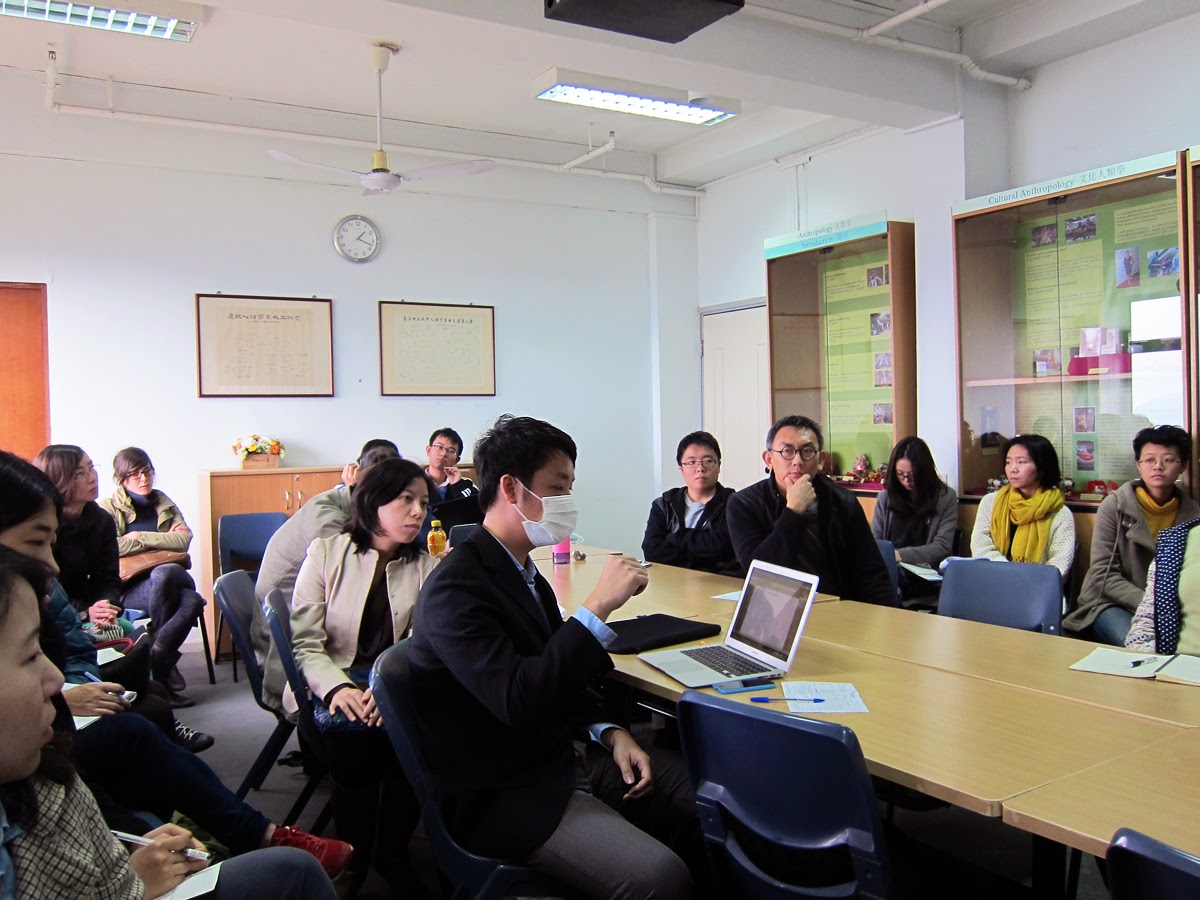“眼力"的法則:當代中國古玩權威地位的合法化研究
講者:武洹宇(香港中文大學人類學系博士候選人)
日期及時間:2015年3月20日,中午12:30
地點:香港中文大學新亞書院人文館401室
****************************************************************************
武洹宇在廣東省的一個三線小城A進行田野考察,訪問了一個專注古陶瓷收藏和研究的民間團體。在研討會中,她以該團體兩位創始人的個人經歷為線索,講述他們在上世紀的90年代中期,從國家“體制內”的診所藥工,一起辭職,下海經商,然後在經商轉軌途中進入古玩收藏的場域謀求發展,計劃成立民間團體“A城古陶瓷研究會”。通過舉辦數次大型展覽,邀請知名的“前輩”權威到場剪綵、題詞、觀展留影以及為展覽圖鑒作序等方式,他們的“眼力”逐步獲得業內的廣泛認可,進而樹立起自身的權威地位。
 |
| 研討會講者武洹宇 |
然而,在計劃實行之初,他們就在贗品上展的問題上與前輩的意見有嚴重分歧。堅持己見,他們定必得罪前輩,無法獲得支持;放棄自己的判斷,任由一些自己看來是贗品的器物展出,又會損害自身名譽。他們意識到自己對遊戲規則的設想與現實世界的情況並不重合:“辨識真偽的能力”與“去偽存真的德行”可相互分離,權威的現實意義也紛繁複雜——有“守德的權威”,亦有“失德的權威”。最終,他們選擇了“堅持自己”,而代價就是“知止”——成為了A城的地方權威之後,便不再企望佔據省級權威的第一把交椅,也不再妄圖晉級為國家級的古玩權威。這種“堅持自己”的方式讓他們贏得了相當一部分專家的支持和認同,但同時也因此得罪了一大批前輩權威,使他們想要繼續舉辦展覽也難以獲得前輩支持。不過這個決定也為他們帶來了一定程度上的好結果:幾場大型展覽贏得的名聲和威望使他們獲得了兩項重要的官方頭銜:省文史館館員和A城政協委員。以古玩鑒定專家的身份獲此榮譽,標誌著兩人的鑒定“眼力”得到了國家政府官方認定,知識合法化的過程得以正式完成。與此同時,這兩個身份徹底改變了他們的日常社交範圍,使之成為了地方精英團體的成員,進入了一個他們自己稱之為“上流世界”的社會空間。
 |
| 研討會出席者 |
武洹宇總結道:自1978年改革開放以後,中國社會發生了大規模的“脫嵌”(dis-embedding)現象:在鄉村集中表現為農民脫離土地湧入城區打工,在城市則體現為個體脫離國有單位體制“下海”經商,如今改革開放的政令已實施三十餘年,個體如何“重嵌”(re-embedding)成為當代中國研究的聚焦問題。因此,她的研究關注個體經由何種路徑及形式重新嵌入一個新的意義系統(古玩收藏領域)。就A城的個案來看,對於講座中的兩位生於上世紀60年代,在文革時期錯失了接受正規教育的機會,及後在改革開放時代拼搏取得了一定成就的個體來說,獲得國家頭銜而享有與受過高等教育的人等同的人生機會,就成了他們宣告社會地位合法化的主要手段,使之能夠在古玩收藏場域以外的一個更加廣闊的社會空間裏感受一種區隔性的優越。在此之中,有關道德的爭論處在合法性生成的核心位置,而個體合法地位的最終確定,則是經由國家認證的形式得以完成。



















